By Fiza Zahid
ISLAMABAD, Jun 21 (APP): Once seen as a promising fix to Pakistan’s chaotic urban transport woes, ride-hailing services have followed a familiar, disappointing pattern—arriving with bold claims, capturing public attention, then slowly unraveling under the weight of unmet promises, safety concerns, and inconsistent service.
Yango, the most recent entrant in this long line, is only the latest to face public frustration. Marketed initially as a cheaper, tech-savvy alternative, its swift rise has been followed by a steep decline—plagued with complaints of poor vehicle standards, alarming safety lapses, and an unreliable user experience. But the real issue runs deeper than one platform.
From Uber and Careem to InDriver, Bykea, and SWVL, Pakistan’s ride-hailing sector has seen wave after wave of services entering with enthusiasm, only to repeat a cycle of lowered fares, rising popularity, and eventual public backlash. Users often find themselves disillusioned not just with a single app, but with the entire model of ride-hailing itself.
Ride-hailing user Raniya Imran, speaking to APP, said, “Most alarmingly, women report being dropped far from their destinations by Yango without explanation. These mid-ride abandonments, coupled with run-down vehicles, are growing safety threats that demand urgent action from the company and regulators.”
Regular user Laiba Amjed talking to this scribe sharing her frustrating experience said, “My destination was just 10 minutes away, but the driver took wrong turns, got us stuck in traffic for over an hour, blamed me, and demanded extra money. Even after I paid, he said it wasn’t enough. Though I was refunded after complaining, no action was taken against him, leaving him free to repeat this with others.”
She also described a more disturbing incident: “The app assigns just one driver and makes you wait, giving no options. Poor communication and a slow app add to the frustration. Once, a driver ignored my directions and left me on a deserted, under-construction road, far from my destination. It was terrifying in the dark.”
From the drivers’ perspective, the situation has its own complications. Many Yango drivers cite the app’s strict penalties, poor income structure, and long working hours as reasons for frustration. They argue that some fares are so low they can’t even cover fuel costs, especially during long detours or traffic delays.
Hammad, a Yango driver, says, “We aren’t trying to abandon passengers, but when a 30-minute drive in heavy traffic earns only Rs. 300, it feels unfair. Still, that’s no excuse to leave someone stranded, especially in a dangerous spot. The real issue is many drivers are untrained and overwhelmed.”
Passenger Hassan Nawaz Advocate who has to commutes from Fizai Colony to District Courts Islamabad recalled riding in a barely roadworthy vehicle. “The car made loud, threatening noises. It was a 35-year-old Suzuki Mehran. How do such vehicles get approved? There should be proper inspections before these cars are allowed on the road.”
Similarly, Saba, a working woman commuting daily from G-13 Sector to G-7 with her two-year-old son, had another story to share with APP, “I booked a comfort AC ride for my child in the heat, but the driver was rude and only turned on the AC after I insisted—only to find it didn’t work. I paid for comfort but got worse than a regular taxi. There should be a fast and effective complaint process.
At the heart of this growing mistrust is the apparent lack of oversight and accountability—both from the companies and from regulators. Basic features like emergency support, live tracking, and complaint resolution often fail when passengers need them most.
The ride-hailing sector in Pakistan clearly needs more than just another app. What’s required is systemic reform: thorough driver vetting, regular vehicle inspections, transparent fare structures, and above all, a commitment to passenger safety and dignity. Without it, each new platform will likely follow the same trajectory—rising on hype, and collapsing under public mistrust.
Yango declined to respond to growing public mistrust or address issues raised by their own drivers when approached for comments.

